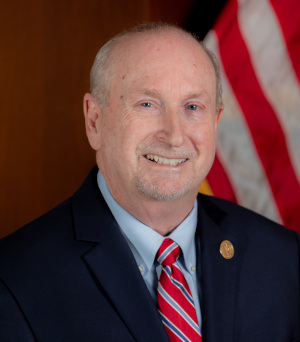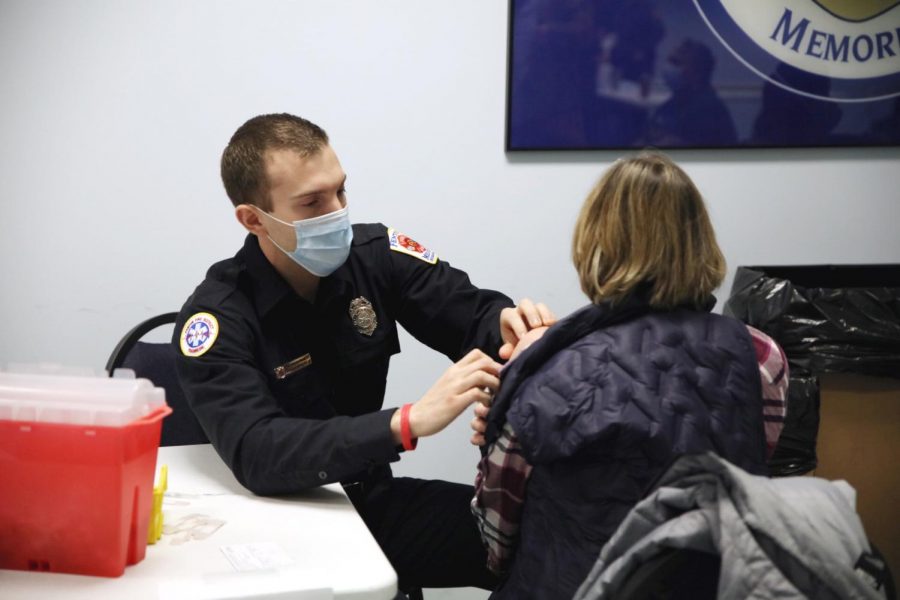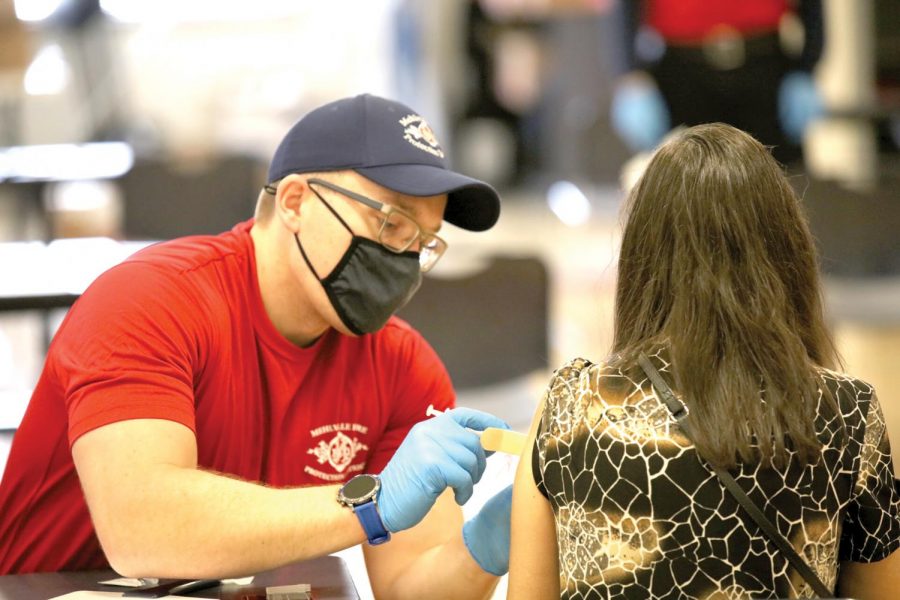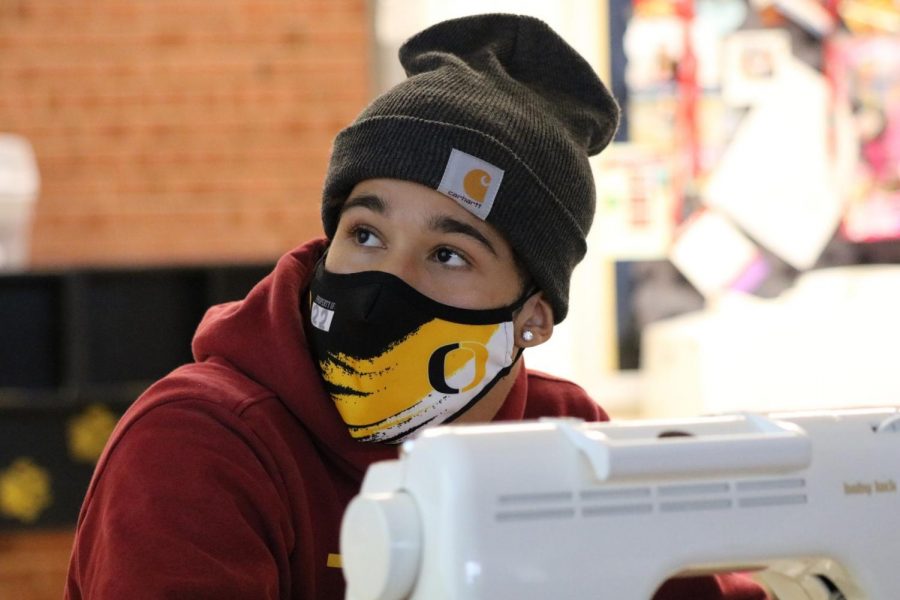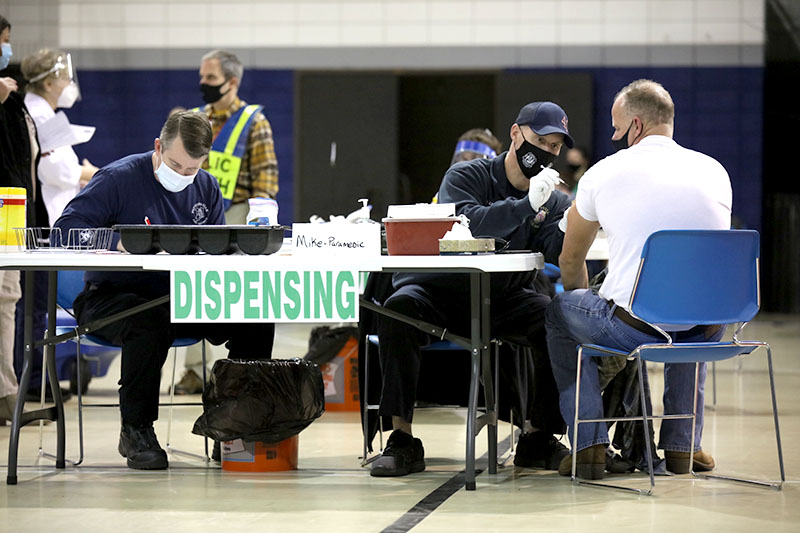Despite an unusual legislative session this year in Jefferson City that was abbreviated due to the coronavirus pandemic, one South County representative’s legislation addressing cameras in nursing homes made it across the finish line with bipartisan support.
The “Authorized Electronic Monitoring in Long-Term Care Facilities Act,” or House Bill 1387, sponsored by Rep. Jim Murphy, R-Oakville, allows families with loved ones in nursing homes to place cameras in those family members’ rooms to ensure that they are being cared for. It was one of just 15 bills to passed by the Legislature this year, two of which were sponsored by Murphy.
“I’ve been working on this bill for two years. I was on the Special Committee on Aging and a bill had come through the House in 2019 trying to do it,” Murphy said to The Call. “A constituent … had called me about her husband dying in a nursing home and wanted a bill that allowed monitoring.”
That year, Murphy sponsored a bill in the House that would allow for electronic monitoring – essentially allowing families to place “granny cams” or other video recording devices in a loved one’s room to make sure that they were not abused or neglected. However, the bill never made it further than committee hearings and ultimately died at the end of the 2019 legislative session.
This year Murphy’s bill had bipartisan support, passing unanimously in the Senate and 147-3 in the House.
“I had gotten it through committee before the COVID shutdown and it came up on the (House) floor just before the shutdown, so it had already gone over to the Senate,” said Murphy. “I managed to convince Senate leadership to get it on the floor and we got it on the floor an hour and a half before the end of session.”
In fact, another South County elected official, Sen. Scott Sifton, D-Affton, was filibustering a crime bill at the time but yielded the floor to allow Murphy’s bill to come up for a vote.
“I had gotten it through committee before the COVID shutdown and it came up on the (House) floor just before the shutdown, so it had already gone over to the Senate,” said Murphy. “I managed to convince Senate leadership to get it on the floor and we got it on the floor an hour and a half before the end of session.”
Murphy improved the bill since it didn’t make it to the finish line last year.
“The Nursing Home Association was against it, so we spent last summer negotiating with attorneys and lobbyists and looking at a Texas law that was better,” said Murphy. “We worked out a compromise where the (video) feed is jointly owned between the nursing home and family, and can’t be released without permission of the other party” except in instances of recorded abuse or neglect.
According to the legislation, signed into law by Gov. Mike Parson in July, any facility and resident with a camera installed in their room must post a “conspicuous sign indicating that rooms, or the room of the resident is being monitored.” It also does not allow facilities to refuse to admit an individual that requests monitoring.
The legislation also makes it a class B misdemeanor to “intentionally hamper, obstruct, tamper with, or destroy” monitoring devices and footage collected.
Murphy’s legislation also had an unintended benefit: as the COVID-19 pandemic continues, and as visitation to nursing homes and assisted living facilities remains restricted, having cameras installed in loved ones’ rooms has allowed them to interact with one another even from the outside.
“With COVID, now people can actually communicate with their loved ones,” said Murphy. “That benefit came clear almost instantaneously.”
With the passage of the legislation, Missouri joins its neighbor Illinois with a law that addresses electronic monitoring in nursing homes. Another of Missouri’s neighbors, Oklahoma, also passed similar legislation this year.
“We didn’t accomplish a lot this session.There were only 15 bills passed, and I had two of them. They were the only two clean bills that passed all year — no amendments or anything added to it. They were the only two single-issue bills that passed,” said Murphy, referring to the fact that many pieces of legislation were combined into “omnibus bills” to allow more things to be passed in a shorter amount of time.
The other piece of legislation sponsored by Murphy that passed through the House and Senate modified the definition of legislative lobbyist to exclude legislative liaisons. Last year, Murphy sponsored the first bill to pass through both the House and Senate – dedicating a portion of Lindbergh Boulevard from Interstate 55 to Lin Ferry Road as the “Cloria Brown Memorial Highway” in honor of the late legislator who formerly represented Murphy’s district.
Murphy will face Mehlville Board of Education member Jean Pretto in the general election Tuesday, Nov. 3. Pretto lost her bid for the seat to Murphy in 2018 by just under 350 votes.
Widow who pushed for bill because of her husband’s experience hopes to go nationwide
The bill is the brainchild of St. Louis resident Martha Eudaley, whose husband, a military veteran, died in a care facility more than a decade ago. Eudaley said “this infuriated me and my family,” but her options at the time were limited because she was employed by a hospital affiliated with that facility. Instead, she sought to make sure that the type of neglect her husband suffered wouldn’t happen to any other family that could prevent it.
“I was caught between a rock and a hard place, and I felt in my heart it would be better to get something done for all seniors at that point because my husband was gone then,” she said. “That’s why I was so passionate about this bill passing.”
To try to get nursing home monitoring passed, Eudaley visited Jefferson City every year for a decade, visiting every legislator in person and, separately, following up with a phone call to every single one of them.
The bill had a series of legislators working for it, but none was able to get the job done until Murphy, Eudaley said. She’s a big fan of the 94th District legislator, who isn’t her own representative but from a neighboring district.
She’s especially pleased that Murphy took on the bill last year as a freshman legislator and got it passed in a fraction of the time other legislators spent on it.
“He is so, so wanting the elder community to be looked at more passionately as people with needs and people who need more respect, and for that he’s just, he’s something else,” said Eudaley. “He’s a very powerful individual when it comes to rights for seniors.”
Even with all her time spent on the bill, Eudaley said it was “worth every minute.”
She’s hoping to take the bill national and has contacted the office of U.S. Sen. Josh Hawley, R-Missouri, who has expressed interest.
“People work all their lives and really when you’re working and you’re younger, you don’t think anything about things like this because it doesn’t involve you,” Eudaley said. “And I can tell you unless you’re totally involved with something, it doesn’t really keep your interest. … But I can tell you that everyone needs respect, and there is no reason why people are not treated with respect in those places.”








